From music to movies to meme culture, transgender visibility has seen an increase in American mainstream media in recent years. But in 2019, two months after trans songwriter Teddy Geiger received a historic Grammy nomination, the Supreme Court of the United States voted 5-4 in favor of limiting transgender people from serving in the military. In Trump’s America, the Education Department has revoked protections for trans students, no longer investigating civil rights complaints on the issue of school bathrooms. The Federal Bureau is now assigning housing and bathrooms according to the biological sex of inmates instead of gender preference. Violence against the transgender community continues to rise at the same rate.
It’s reasonable to feel disheartened by the regressive policy reforms in the Land of the Free. Recent events also serve as an important reminder that progress for the disenfranchised is often in the hands of people in positions of power and influence. Who these people are and the decisions they make can drastically change the lives of the communities they serve. While America is failing to serve transgender communities adequately, globally, politicians and individuals are coming up with effective, non-traditional means to introduce progressive change.
Understanding the unique and powerful potential of a growing social media influencer culture, one Pakistani activist used the influence she had gained as a vehicle to further the cause that is closest to her heart. Today, she is one of Pakistan’s most recognised faces in the transgender community.
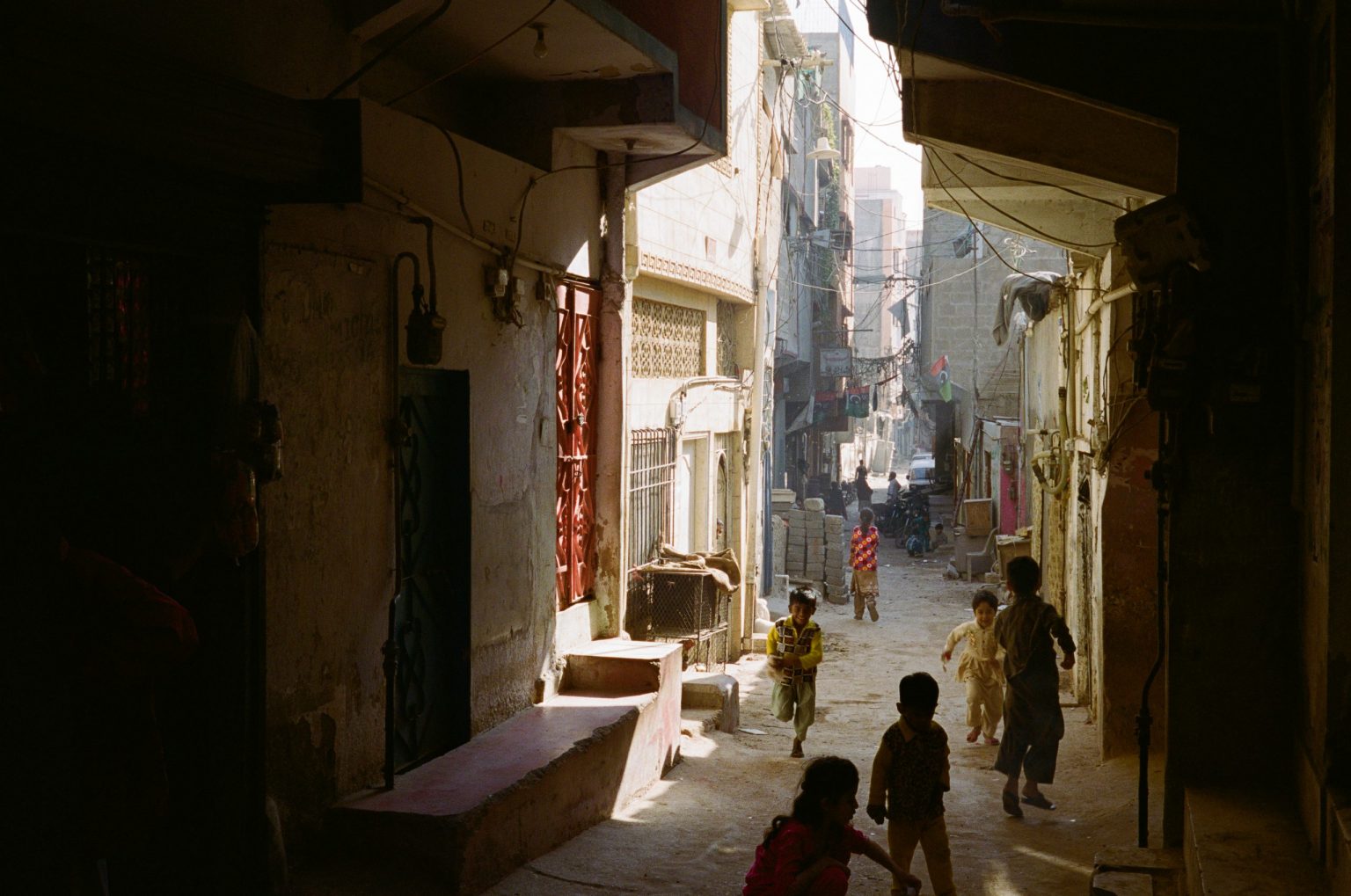
Karachi, Pakistan
In context
In 2018, Pakistan passed the Transgender Persons (Protection of Rights) Act, a landmark new law that is designed to “to provide for protection, relief, and rehabilitation of rights of the transgender persons and their welfare”, allowing transgender people to legally self-identify.
Last year was full of hopeful headlines in Pakistan: Marvia Malik became the first transgender broadcast journalist, the first public school specifically for the transgender community was opened, 13 transgender people ran as political candidates across the country, and Pakistan celebrated its first Trans Pride Parade.
Despite recent progress, Pakistan is by no means a safe haven for transgender people. A fundamental difference between the United States and Pakistan is that trans people have always been visible in Pakistani society, unfortunately making up a large percentage of Pakistan’s homeless population today—many of whom have been rejected by their families and forced into sex work for survival.
Khawaja sira, the politically correct local term which loosely translates to “third gender” in English, have been a part of recorded South Asian history for centuries, holding positions of influence, power, and respect in ancient Hindu tradition as well as in the Islamic royal courts. It was only in the 19th century, when British colonists, disturbed by the perceived “sexual deviance” of Indian men, did the institutional persecution of transgender and homosexual people begin. The Indian Penal Code, 1860, outlawed “all penile-non-vaginal sexual acts between persons”—the mere accusation was enough to put individuals at risk of imprisonment for life. 11 years later, the Criminal Tribes Act, 1871 specifically reassured the persecution of openly transgender individuals, particularly eunuchs, who were labelled “criminal tribes” and considered “addicted to the systematic commission of non-bailable offences”.
These legislative actions changed not only the fundamental human rights but also the societal perception of the transgender community. The domineering colloquial language used to define the transgender community today, like khusra and hijra, loosely translated to “eunuch” in English, have evolved into derogatory terms. The modern day transgender community in Pakistan is subject to harassment, violence, and discrimination. Like most countries across the world, Pakistan has a long way to go in making institutional changes to once again protect and support transgender people from harassment, violence and discrimination.
Long before the country initiated the historic policy reforms for transgender people, Kami Sid had been working relentlessly in the development sector behind the scenes to bring greater visibility to trans issues. It was in 2016 that the activist arrived on the fashion circuit with a purpose—to take the conversation of trans issues straight to the world of media entertainment.

Karachi, Pakistan
Meet Kami Sid
Kami Sid identifies herself first and foremost as an individual—Kami Sid—a personality to be reckoned with.
When I was relatively new to Pakistan I found out about Kami Sid when I saw her walk in a fashion show in 2017. Lauded as a local celebrity, I knew of Kami as Pakistan’s first transgender model and as an “influencer” with a larger than life personality full of confidence and charm. What I didn’t know was that Kami is more aptly described as a local hero—a community leader, tirelessly fighting to tackle transgender discrimination country-wide.
For Kami Sid to rise to prominence as a model and actress is an act of defiance in itself, effectively rejecting the stereotypes of professional work that the trans community endures due to systemic discrimination, folklore, and fear of hate and harassment. Proudly transgender, she uses her platform to educate the masses on issues, fears, and prejudice against the transgender community.
Facing rejection from her own brothers for coming out as trans, Kami Sid and her vivacious personality still unapologetically took to the public stage and demanded change. Utilizing her celebrity status in addition to her work behind the scenes, Kami Sid fearlessly tackles trans issues head on.
Behind the scenes
Kami and her longtime boyfriend Sid Kami share the same office where she heads up Sub Rang Society, a community-based NGO that aims to promote human rights, equality, and the well-being of gender and sexual minorities in Pakistan. Kami’s boyfriend, Sid, who identifies as a gay man, uses the same space for his work as Program Director at Humraz Male Health Society, the first community-led organization that exists to improve the sexual health, welfare, and human rights of males who have sex with males and their partners. In Pakistan, where the trans community faces harassment and discrimination and it is still illegal to be gay, Kami and Sid’s partnership within the four walls of their office is essential for protecting the communities they are a part of.
Aware of her relative privilege in the transgender community, Kami lives by the motto that you must think and act like a leader to initiate the changes you want to see in society. Kami knows she doesn’t have to face violence on the streets the way so many transgender sex workers do. Responding to members of the community making 4a.m. calls from the police station reaching out to her for help, Kami always makes her way to the station in an instant without a fuss, understanding that her middle class background and education is crucial in discussions with the police.
“I travel a lot but whenever I come back I know this is my place and my people.”
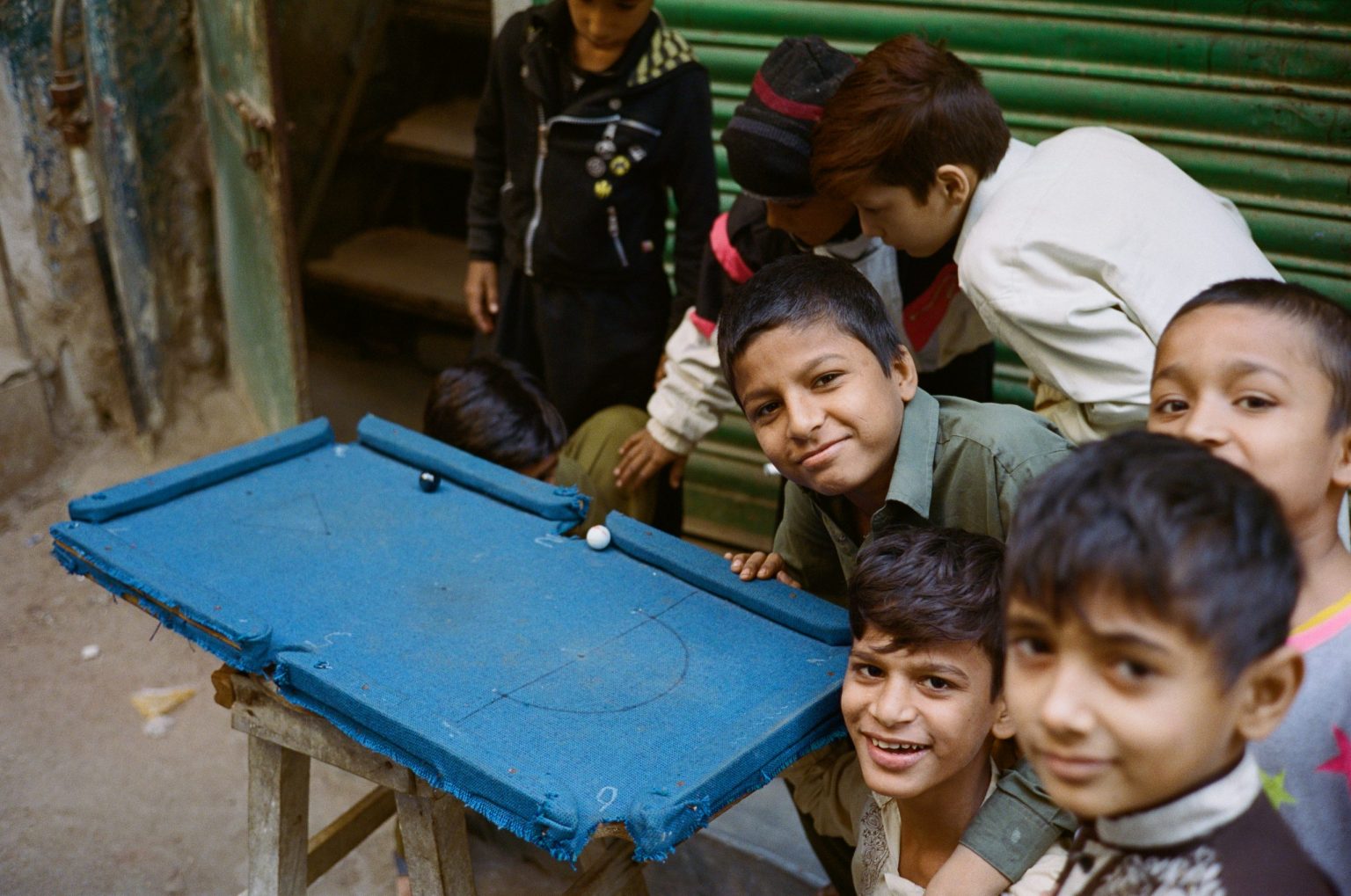
Karachi, Pakistan
On fear
Kami’s work does not come without substantial risk. Using the medium of media to tackle transgender issues gives the activist a substantial platform for exposure but also backlash. Kami’s own mother does not support her modelling and acting career out of fear for her safety. When asked if she fears for her own safety, Kami shared an anecdote about her experience at Pakistan’s first Trans Pride parade.
“The other transgender people were scared. At the Pride parade I was wearing a backless blouse and a few of my friends said, “Please don’t do this. This is Lahore. Please don’t do this. Please don’t dance. Don’t show your body””. Kami laughs, “I said see? My body, my right. I was dancing fearlessly and the police [were] also waving [at] me. The people on the road were also waving at me. I said see? They love it. It’s Pride! I have to celebrate myself, why not”.
But Kami is no stranger to backlash. After being featured in the BBC3 documentary ‘How Gay is Pakistan?’, Kami admits she received a lot of threats from the public. Laughing as she shared that the threats were likely due to the title of the documentary, she paused and continued, “But it’s okay. I guess since I started modelling I’m more cautious. I think nobody is safe in Pakistan, so I’m not the special one. I love my country, but I don’t know why. I don’t know why means I don’t know why! I travel a lot but whenever I come back I know this is my place and my people. It’s not like I’m a very, “Oh, I love only Pakistan and Pakistani people.” It’s not like I’m Quaid e Azam or Allama Iqbal. I am Kami Sid and I want to change something”.
In the spotlight
Today, Kami’s most recent media milestone comes as she makes headlines for her work as an actress. Kami starred in short film titled Rani, which premiered for the first time in Pakistan in March of 2019. Winning international awards at the NBC Universal Short Film Festival, Outfest Los Angeles Film Festival, and Lesbisch Schwule Filmtage Hamburg International Queer Film Festival, the short film had been nominated for numerous other awards as well. Following the journey of a poverty stricken transgender woman who set out to care for an abandoned baby, the film exposes the harsh realities transgender people face every day on the streets of Karachi.
Following the premiere, Kami shared her thoughts on the reception at the Karachi Literature Festival screening. “For me the movie is all about motherhood, the life of transgender women, and empowerment. It’s quite depressing but the people loved it. The Karachi Literature Festival had almost more than 1500 people [in the audience]. People were sitting on the floor, chairs, and people were standing as well. They loved it because they clapped in the end of the movie and these claps and the whistles, all these things showed the love which I got from the Karachi Literature Festival day before yesterday. I’m still like, I’m sending you this voice note and I’m shivering. I don’t know, because I’m a transgender woman and I did this not for myself but for the community as well. I just want to show the real picture of the community in the media. This is the medium, the media—like TV, radio, social media and other things we have nowadays. I loved it and I don’t know, but Pakistani public, they are awesome. Right now I am back from Lyceum school and whole bachas (children), the whole children, the whole health teachers, senior department people, they loved it. They’re still sending me the love on Facebook and Instagram.”
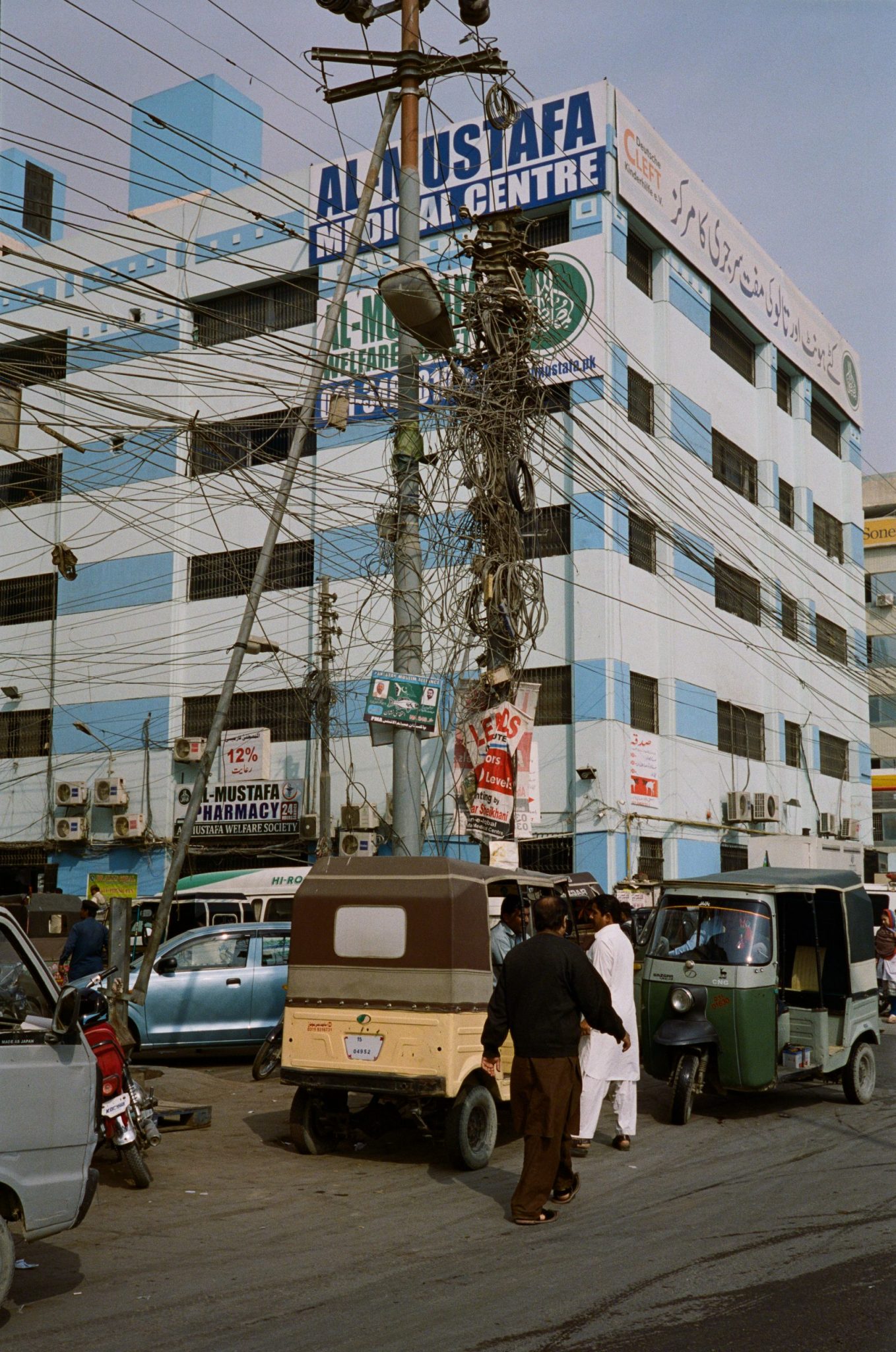
Karachi, Pakistan
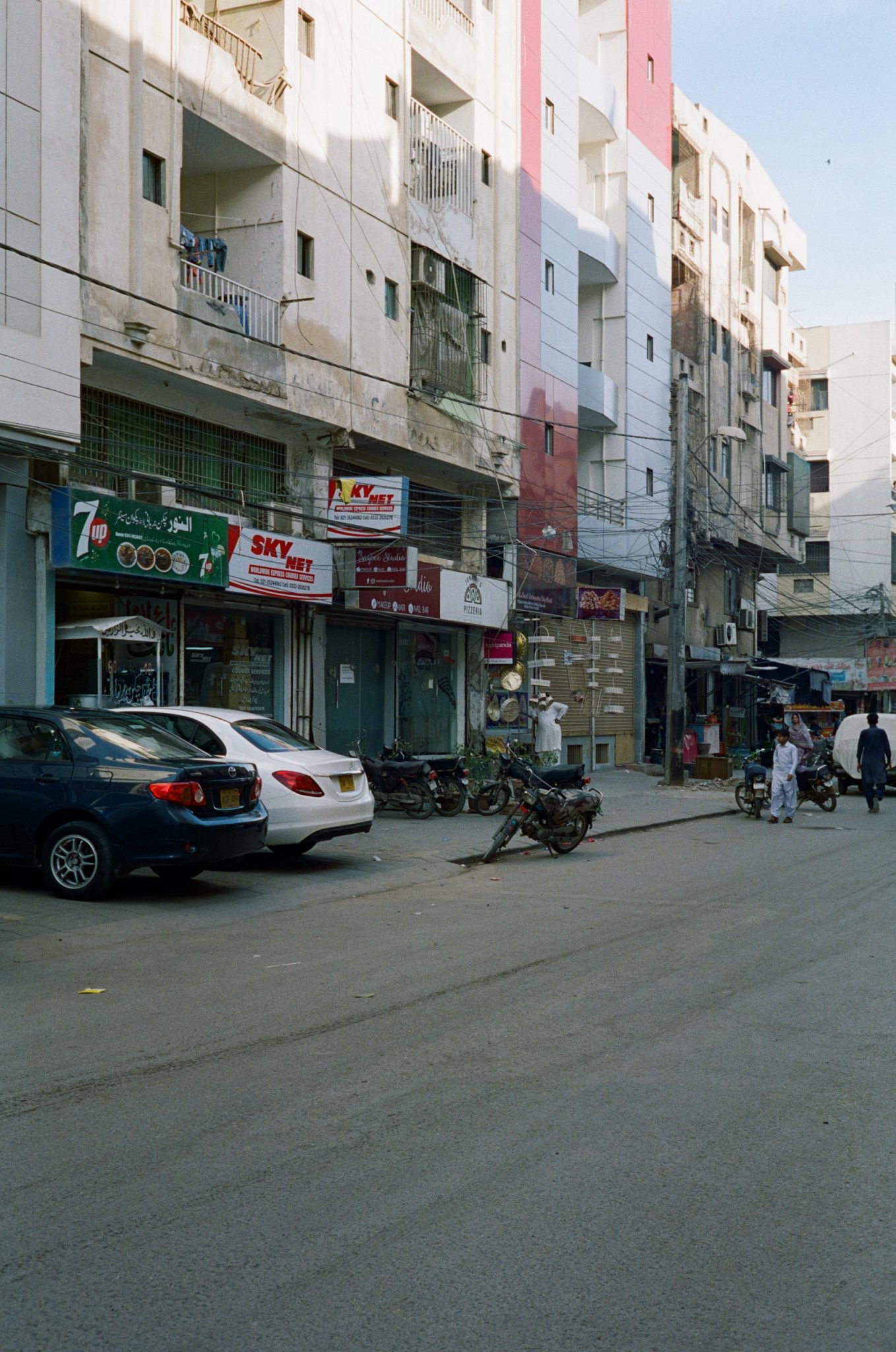
“We trans people are beautiful. We are talented. Trans is beautiful and trans won’t be erased. It means we won’t be erased because we are part of the society.”
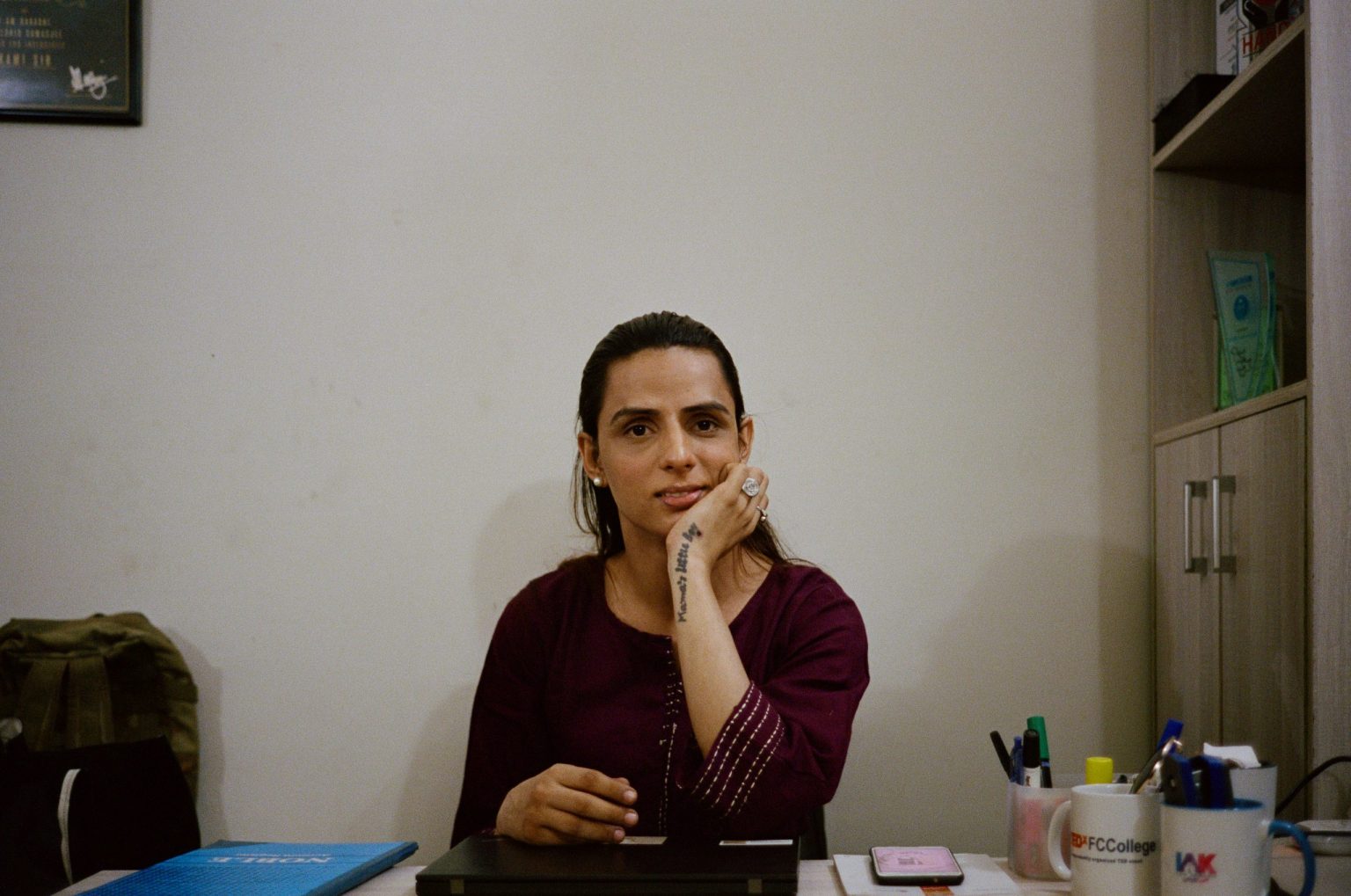
Power of personality
Kami Sid is not only an icon in the transgender community, but living proof that in the right hands, the power of media can be used to open minds, implement change, and initiate progress. According to Kami, media exposure is an essential component in the battle for transgender rights. “We are trying to push government by media. Media plays an essential role [in] provid[ing] safe spaces and [in] provid[ing] job opportunities for transgender women.”
Thanks to Kami, local Karachi coffeeshop Coffee Wagera hired its first transgender barista. Kami uses her platform to support and bring awareness to members of the transgender community, like Bebo Haider, the founder of Trawah, Pakistan’s first ever transgender beauty salon. Kami Sid is a trailblazer for trans exposure and representation in media and entertainment. Confident and composed, Kami often addresses ignorant comments and questions to educate the public by regularly participating in public talks and interviews.
Kami Sid is an important reminder that progress for the disenfranchised is often in the hands of people in positions of power and influence. Who these people are and the decisions they make can drastically change the lives of the communities they serve. Traditional seats of power that politicians, lawmakers and the police hold can be challenged by unconventional forces of power, by individuals that understand and utilise the growing influence of social media and entertainment. Like Pakistan, could new and existing influencers in media and entertainment machine perhaps provide new hope for the transgender community in Trump’s America? As they continue to try, we can only be hopeful that their efforts are welcomed by progressive change once again.
Kami Sid works hard behind the scenes and her efforts are not limited to what you or I may see as we scroll through our Instagram feeds, yet equally, her “celebrity status” has proven crucial in opening the public, as well as policy makers’ minds to a simple message:
“We trans people are beautiful. We are talented. Trans is beautiful and trans won’t be erased. It means we won’t be erased because we are part of the society. And yes, we are different. It’s okay to be different sometimes because same same are the same but when you are different people notice you and they give you love as well.”



















